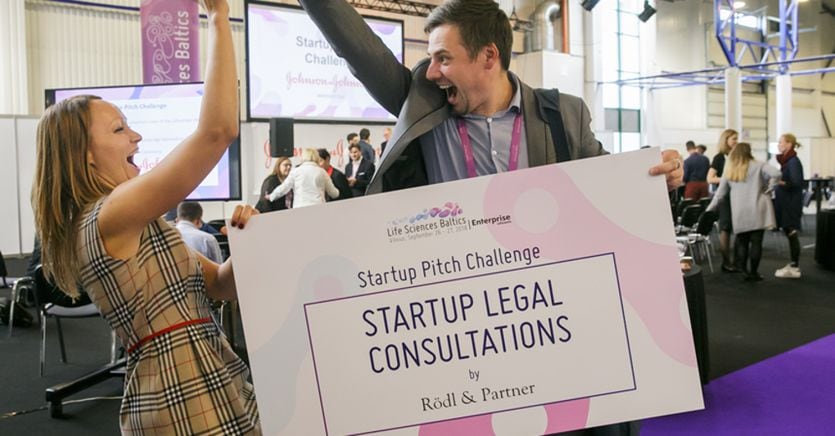Listen to the audio version of the article
The objective of the Lithuanian government, confirmed even after the change of majority following the December 2020 elections, is to grow the life sciences sector to 5% of GDP by 2030. And the country is already on the right track: «We are focusing on biotech, the pharmaceutical sector and medical research. Today the sector represents 3% of gross domestic product, compared to a European average of 1%. And over 90% of the output is exported.” With these words Aušrinė Armonaitė, Minister of Economy and Innovation, opened Life Science Baltics in recent days, an event dedicated to life sciences held in Vilnius, capable of attracting participants from 40 countries around the world.
An attention towards the life sciences sector that began in 1967 with the creation of the Biochemijos institutas, the biochemistry institute that is part of the capital’s university, and which had a new impetus immediately after independence: « in 1993 we decided to sell some institutes, what today we would call university spin-offs. Furthermore, after the collapse of the Soviet Union, many businesses were born in Lithuania, including in this sector”, recalled the Deputy Minister of Education, Science and Sports Justas Nugaras, again from the stage of the Vilnius fair.
But there are several factors that make Lithuania an innovation-oriented country. Meanwhile, the population: “we don’t have natural resources, but we have talents”, a phrase that was often heard repeated by the speakers who took turns on stage during the two days dedicated to life sciences. 56% of the population between 25 and 34 years old has completed a tertiary education course, 85% speak English fluently, 53% speak at least two foreign languages. There are 52 thousand ICT specialists and 15 thousand scientists and researchers, in a population of just 2.8 million inhabitants, less than Tuscany. Secondly, political support. Not only did the objective of reaching 5% of GDP generated by life sciences resist a change of majority. Last year three government agencies dealing in various capacities with business support, investment attraction and innovation were unified into the Inovacijų agentūra, the Innovation Agency which has a budget of over 500 million over five years , largely coming from European funds. And then there is a thriving ecosystem, capable of already giving life to three unicorns: Vinted, active in second hand retail, Baltic Classified Groups, which operates in the cybersecurity sector, and Nord Vpn, which develops virtual private networks. But this is just the classic tip of the iceberg. Between 2017 and 2022, according to Dealroom.co data, the value of Lithuanian startups went from 600 million to 9.5 billion, a growth rate second in intensity in Europe only to that of Croatia. There are more than a thousand innovative companies active in the country, supported by funds of which 86% come from abroad and capable of providing work to over 17 thousand people. Among the most interesting companies there are some in the life sciences sector. For example, Caszyme, a company active in gene editing for both medical and agricultural purposes, whose founders include the CRISPR-Cas9 pioneer Virginijus Šikšnys and which, during the first phase of the new coronavirus pandemic, developed a diagnostic test. Or Atrandi Biosciences, which develops technologies and hardware for single cell analysis, which closed a 4.5 million euro financing round in 2023. The same year in which Oxipit, a startup that develops artificial intelligence algorithms for diagnostics for images, he got 4.4. It is also thanks to realities like these that Lithuania aims to reach 5% of GDP from the life sciences sector by 2030.
